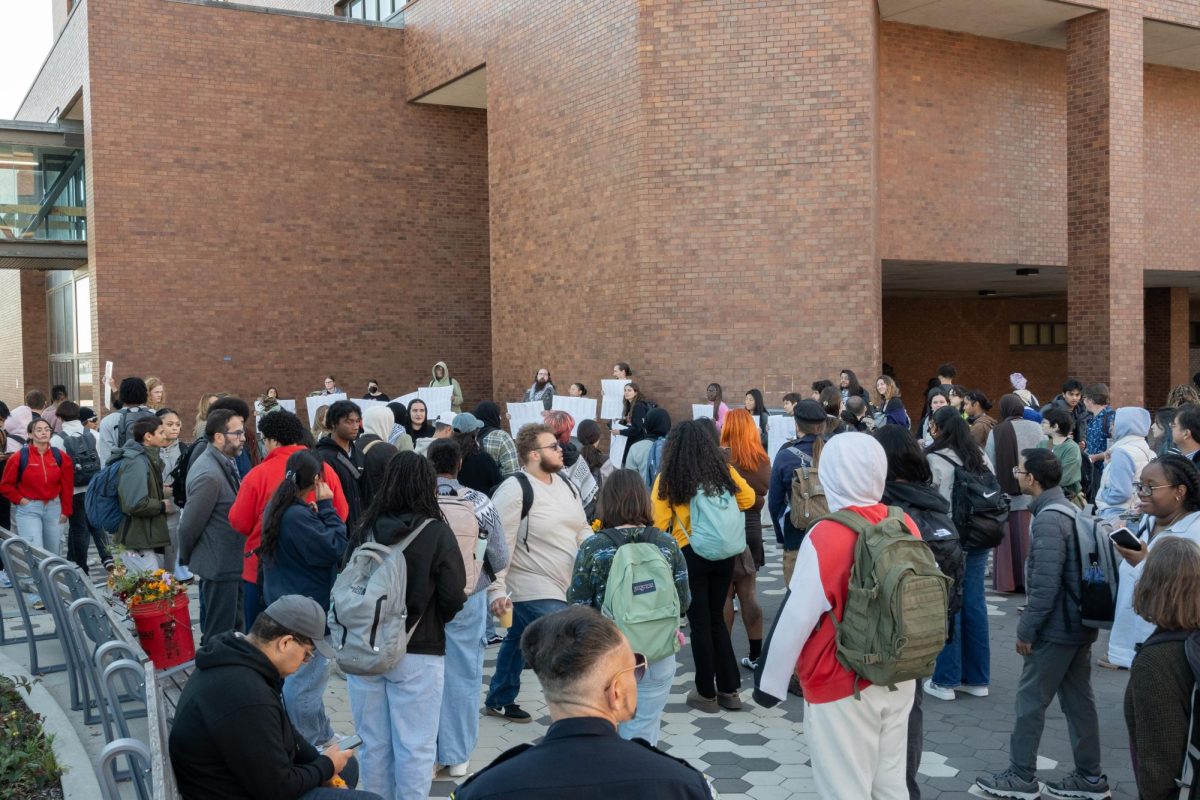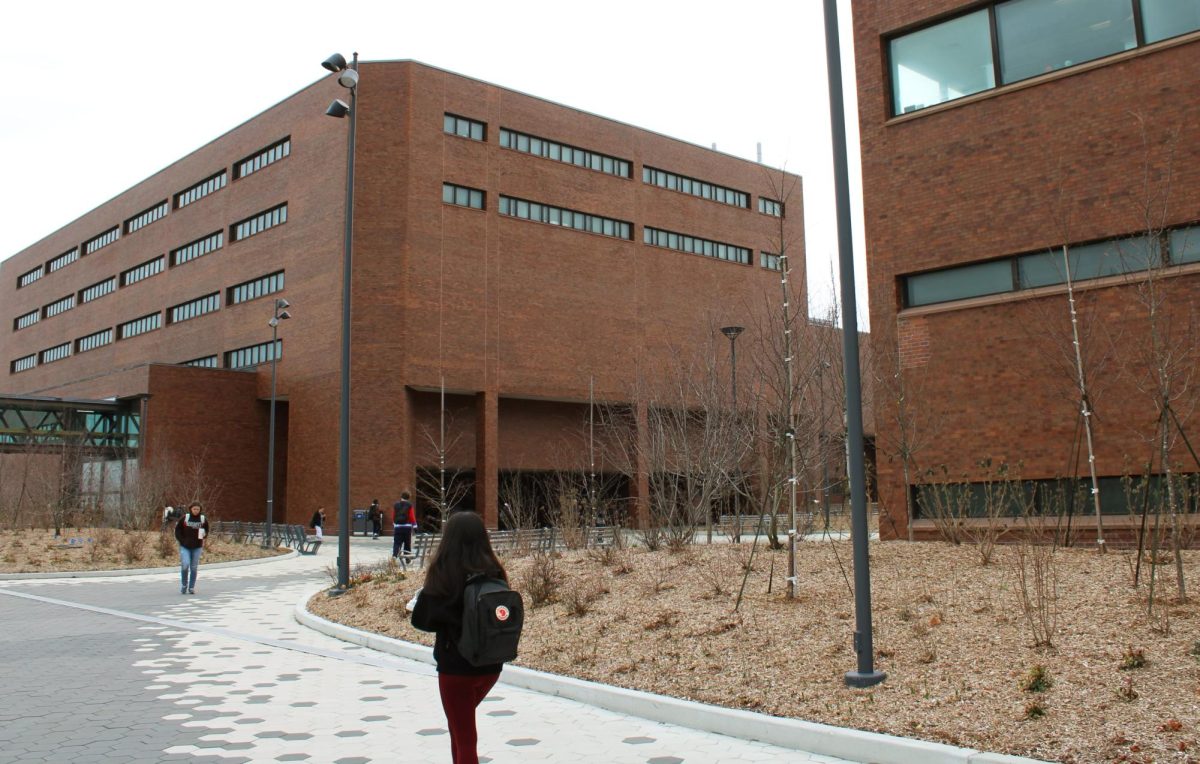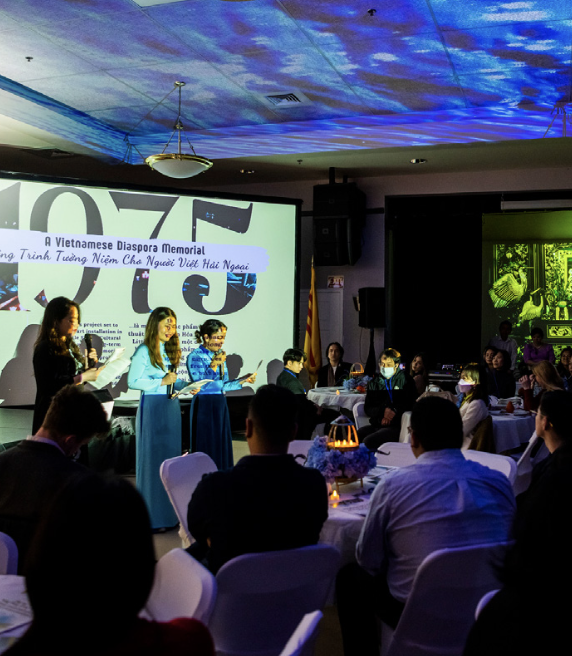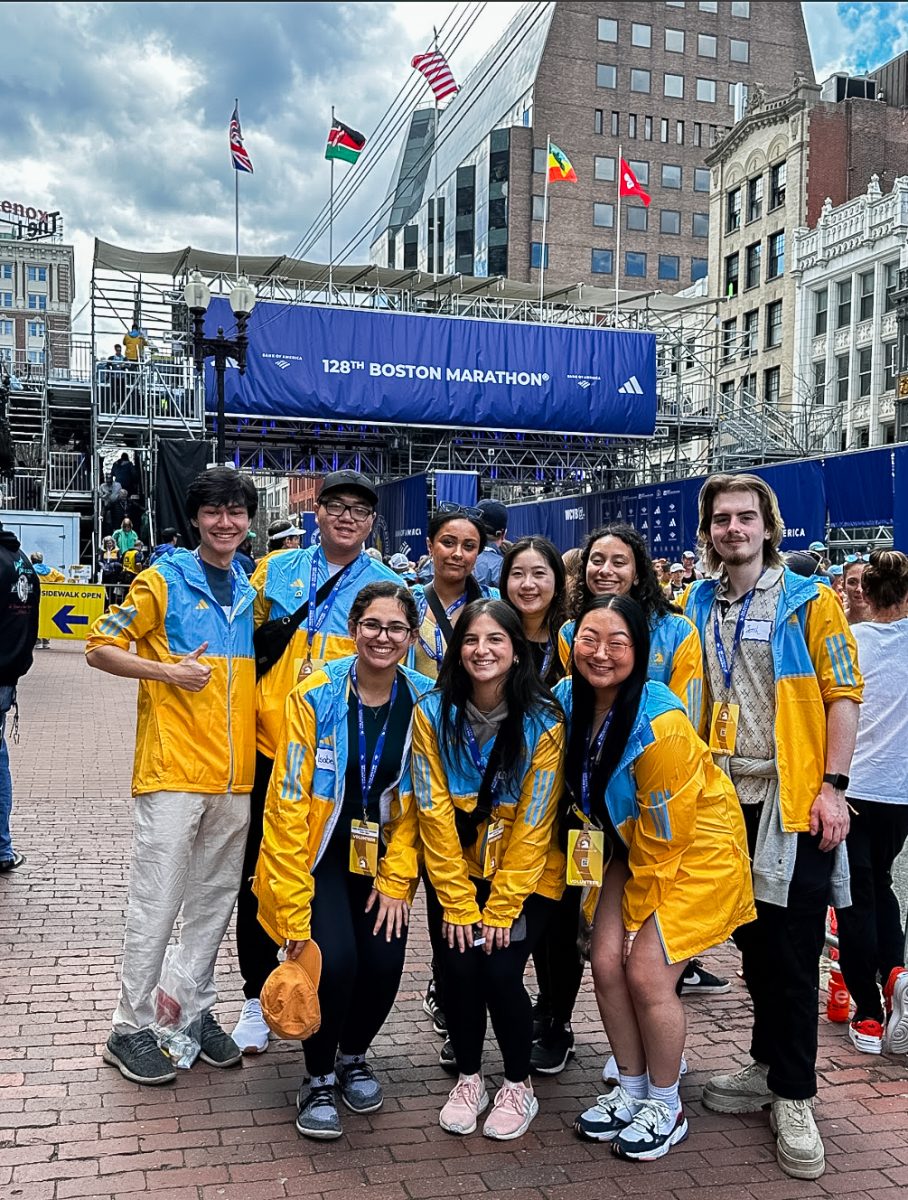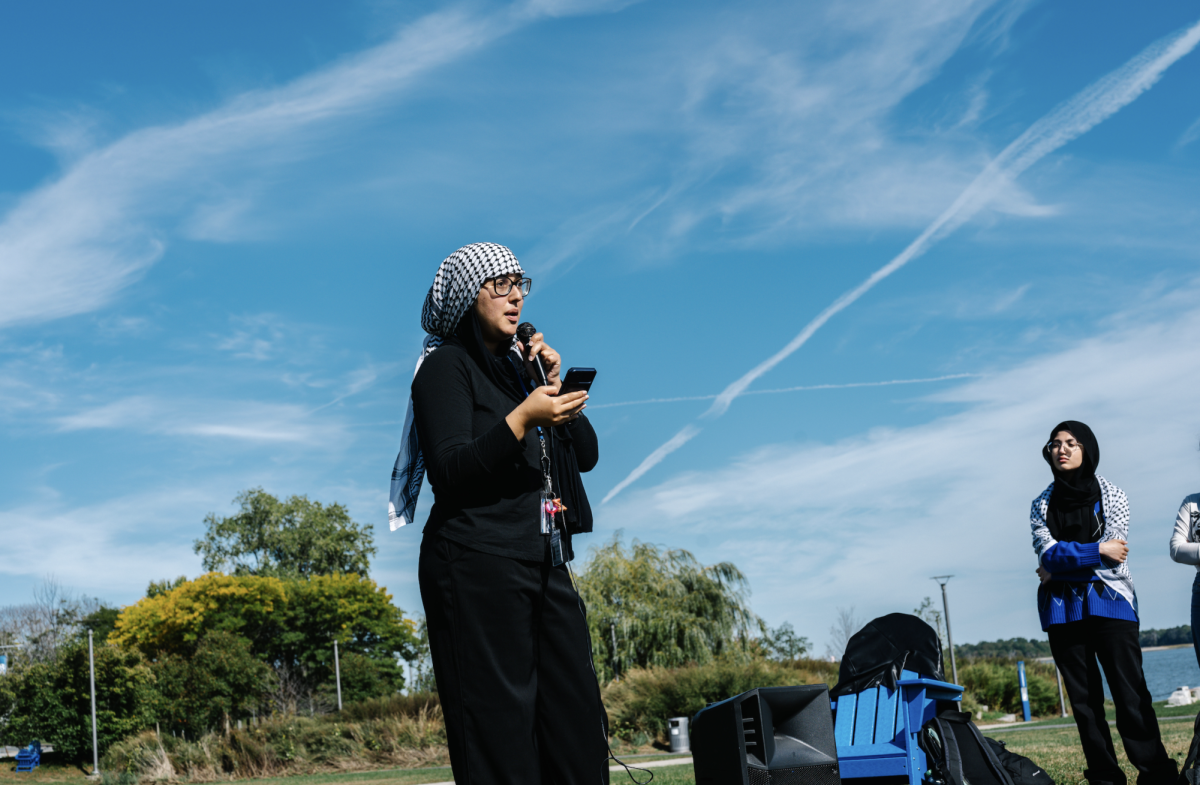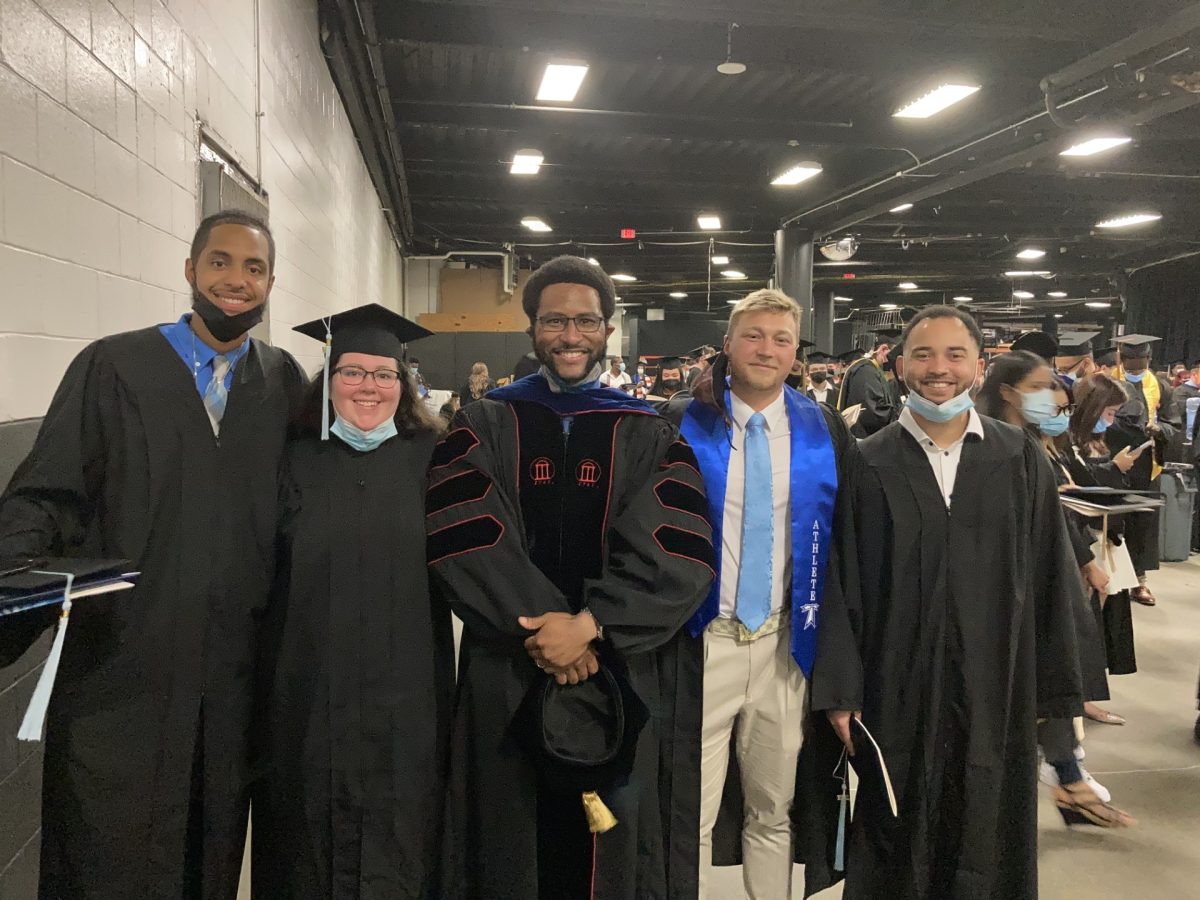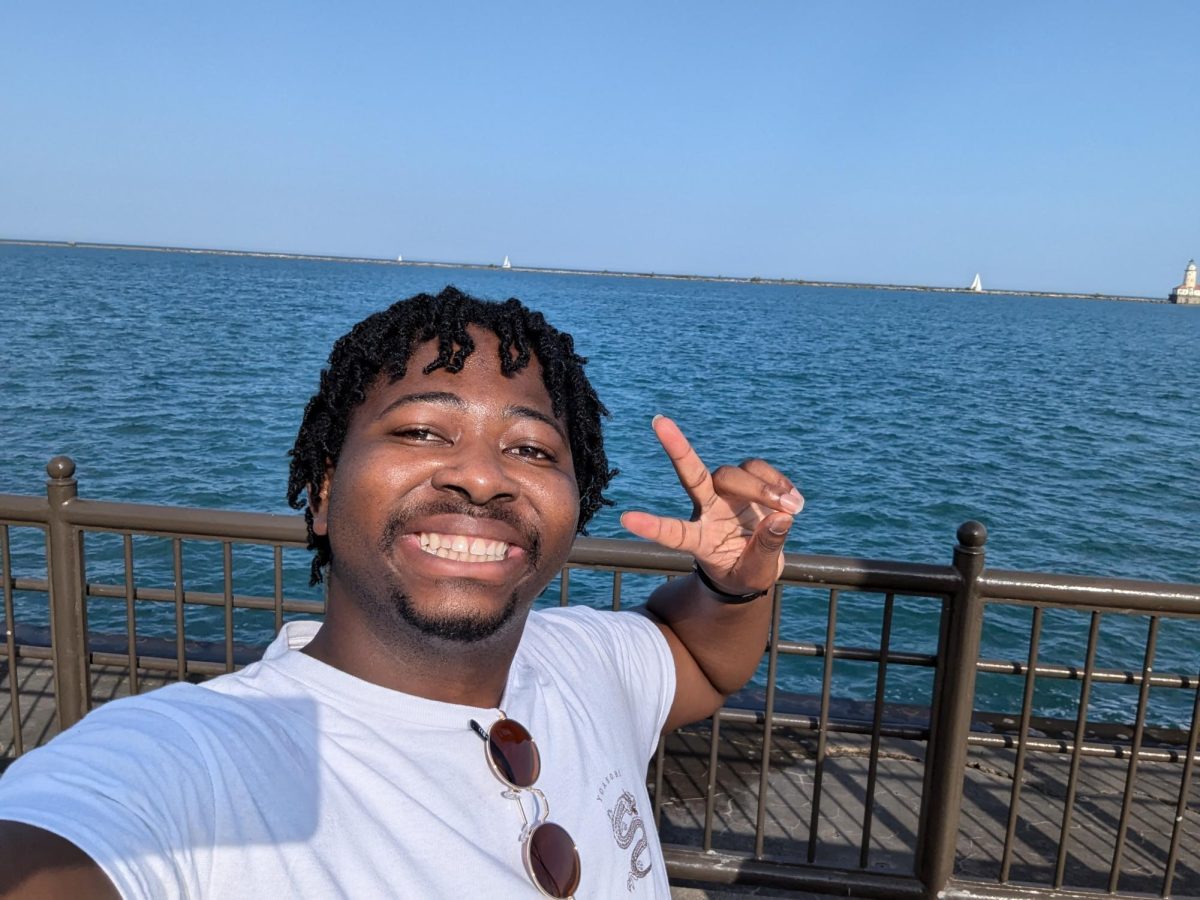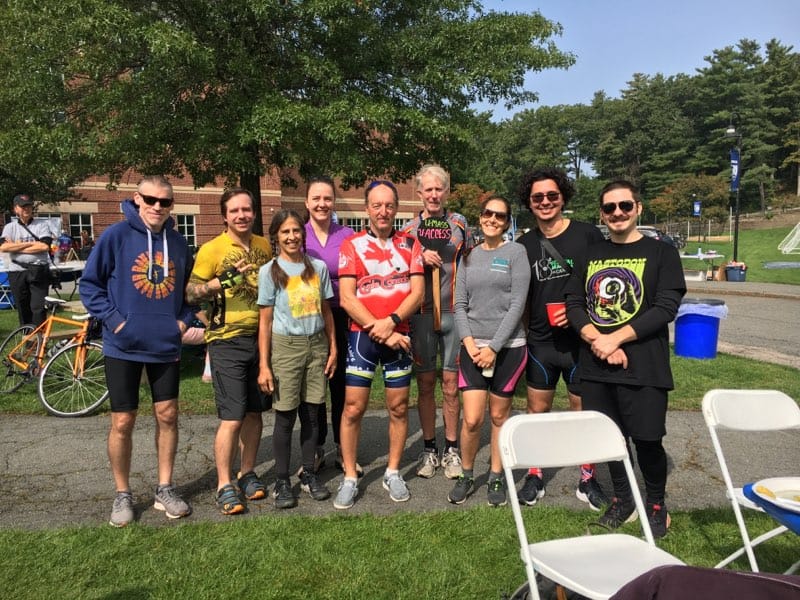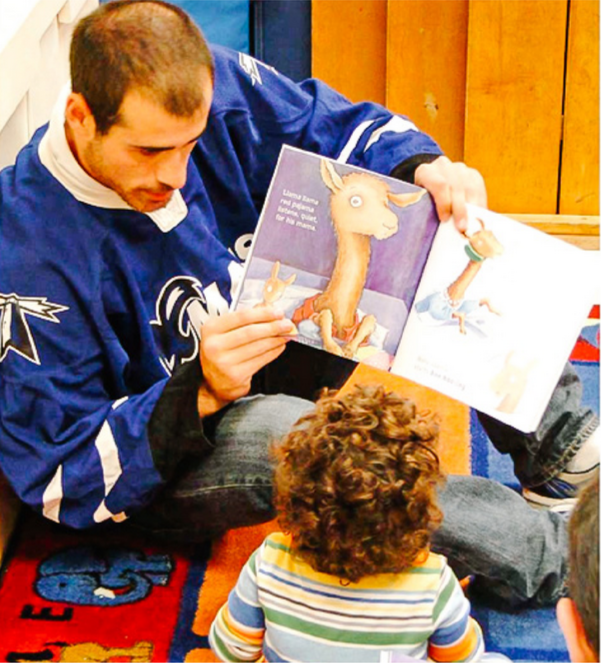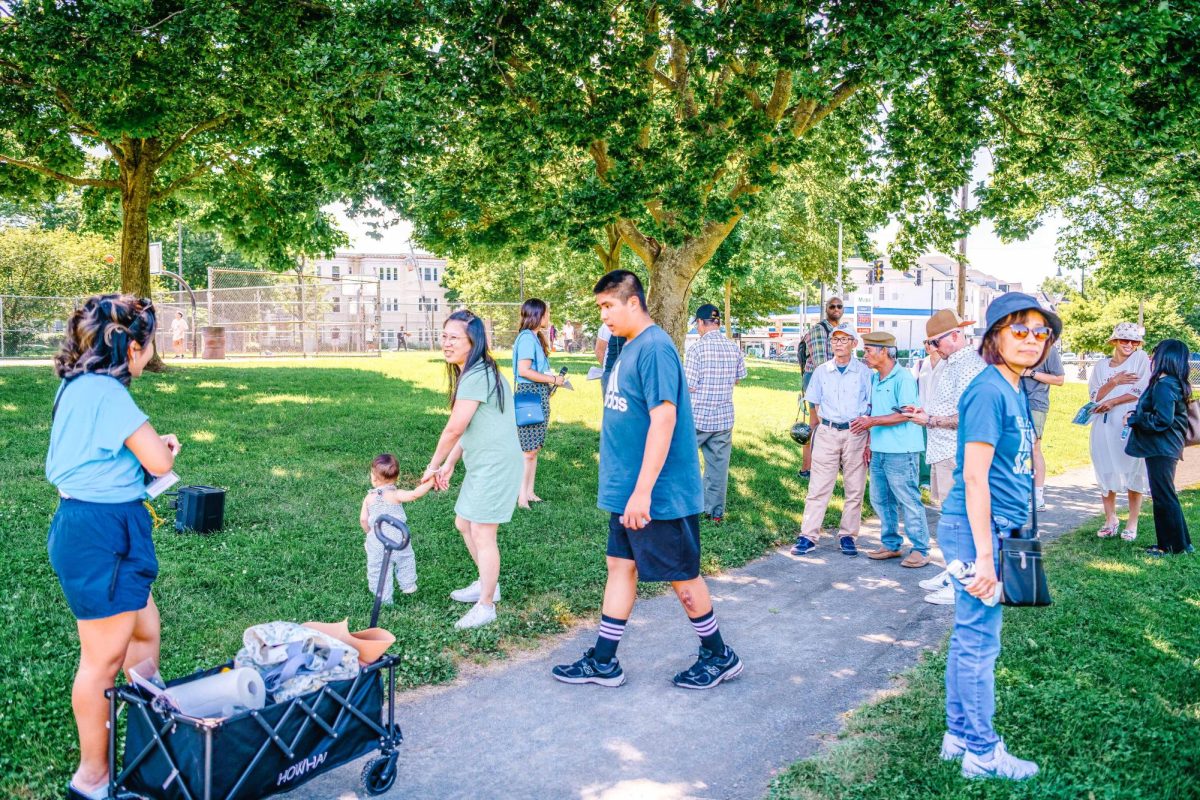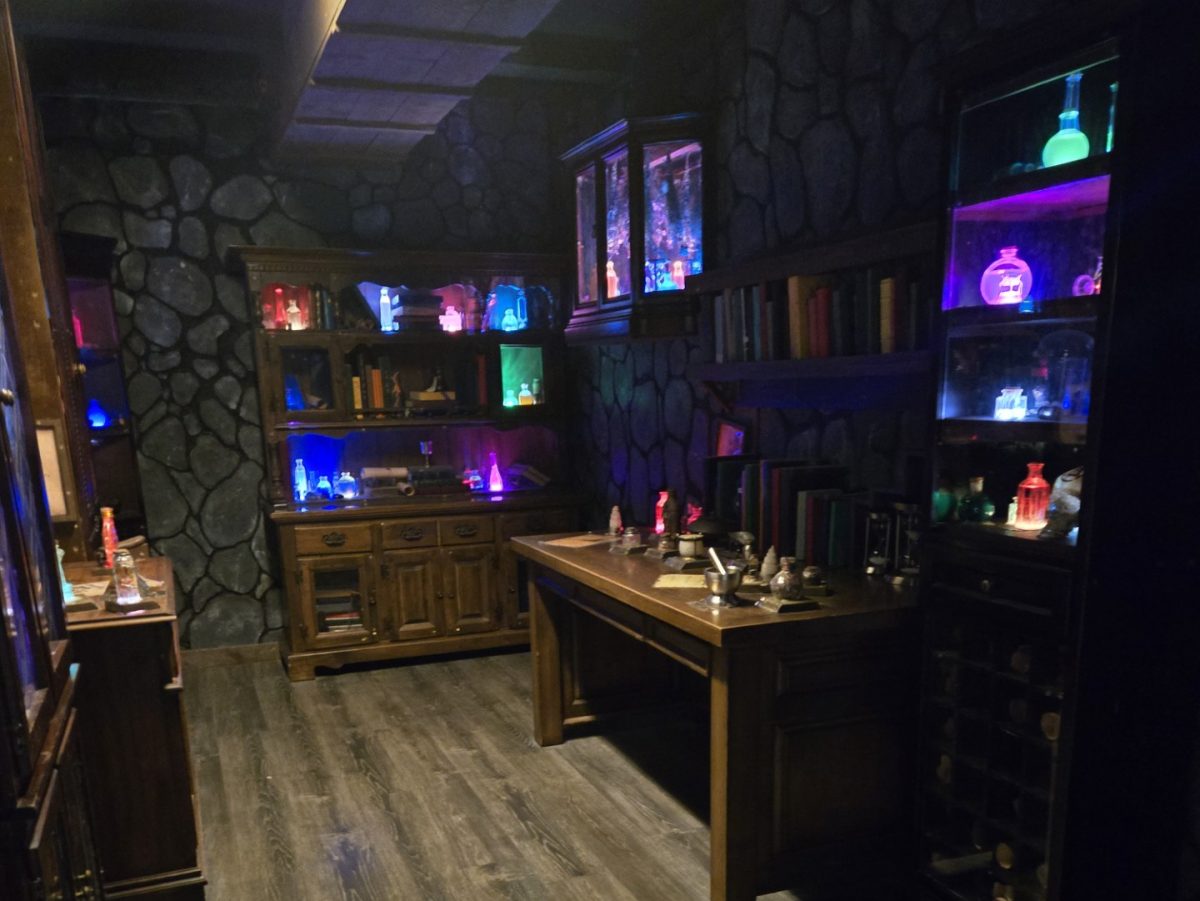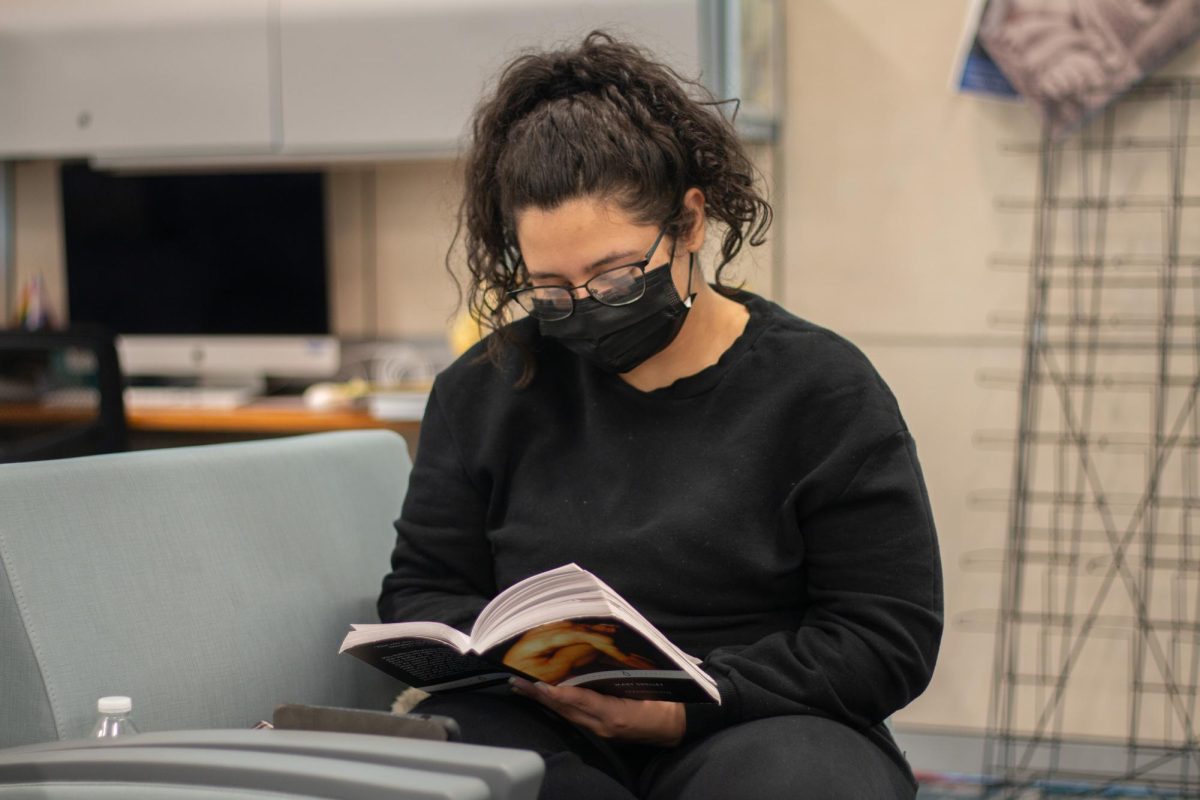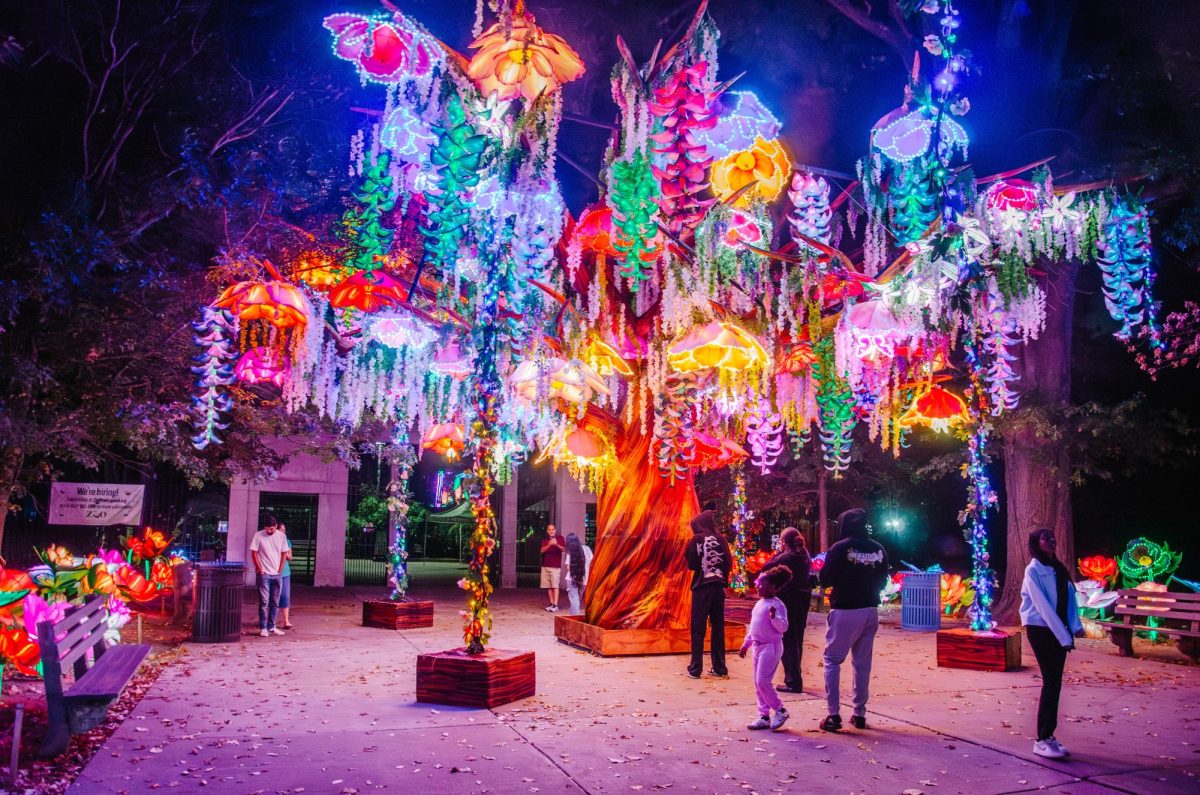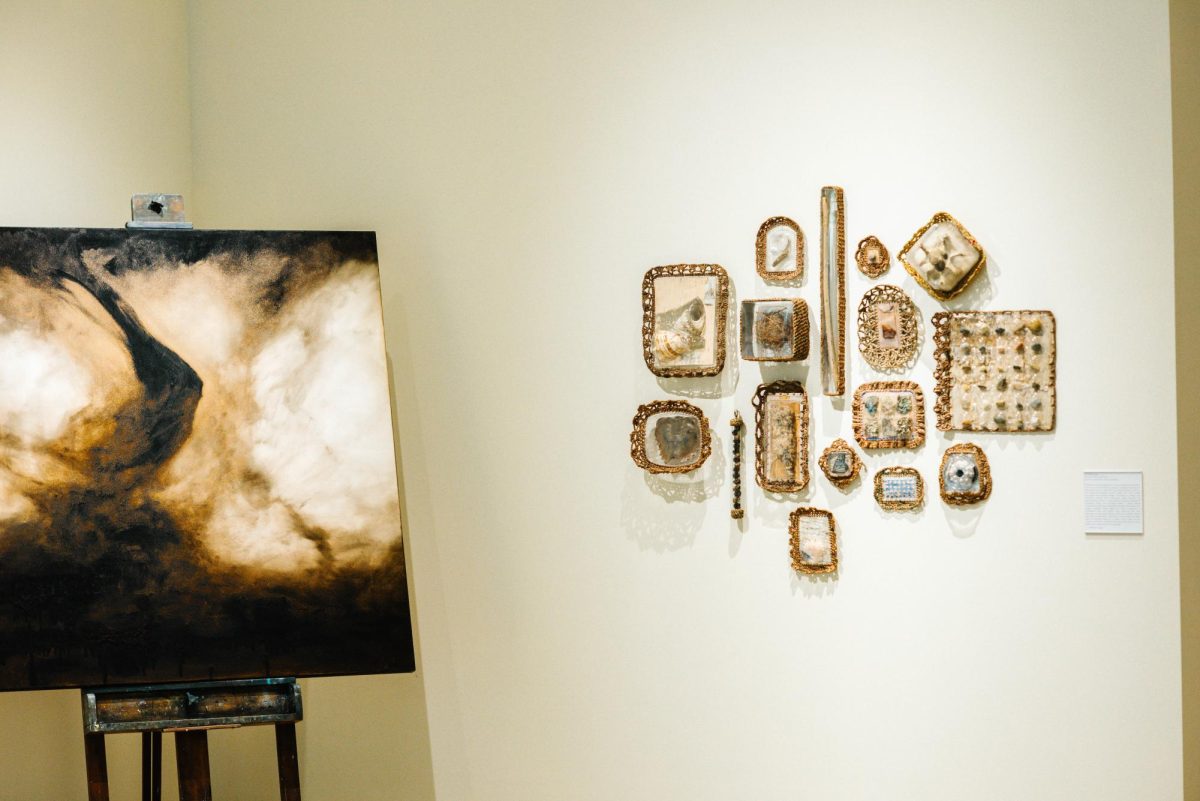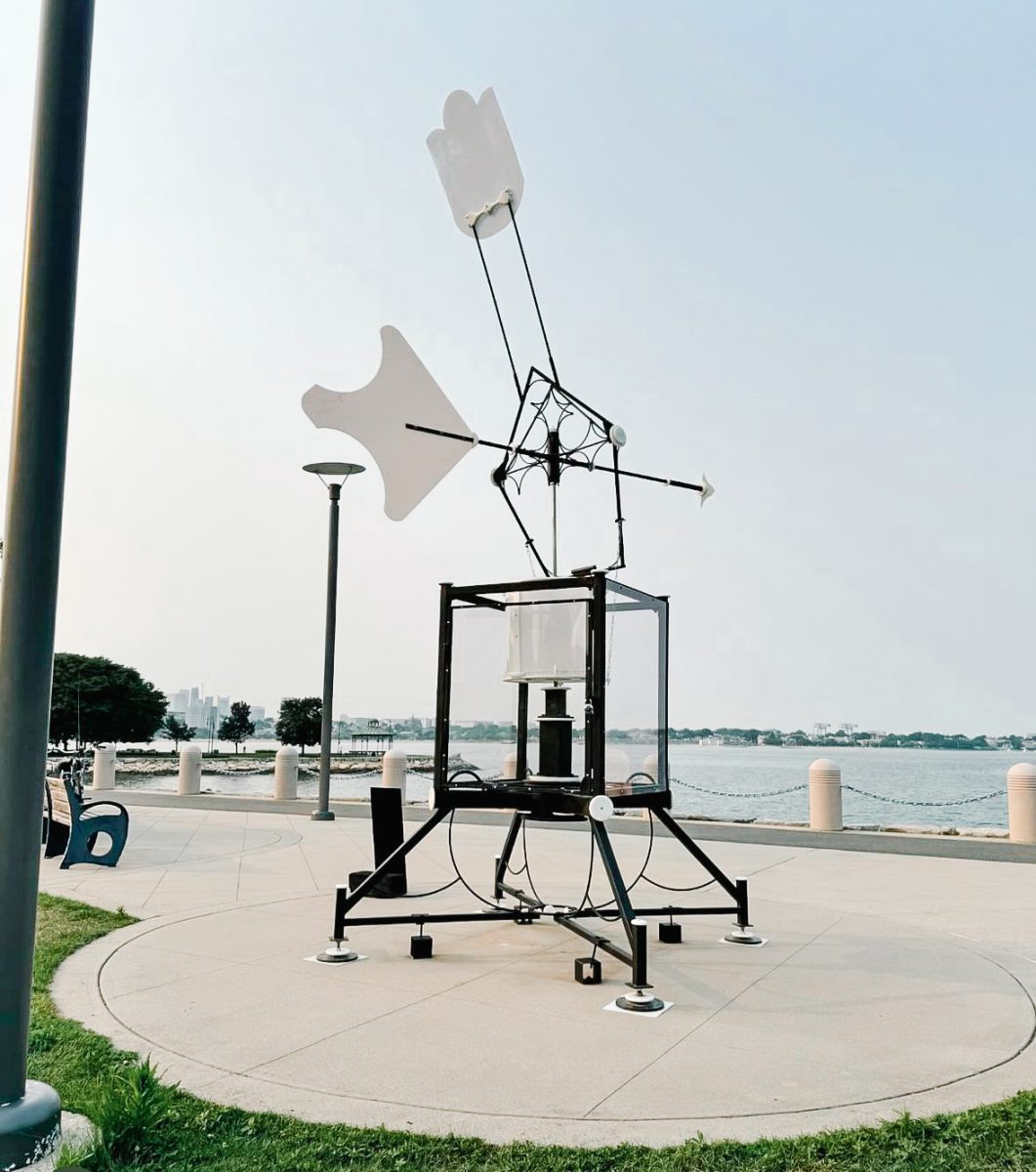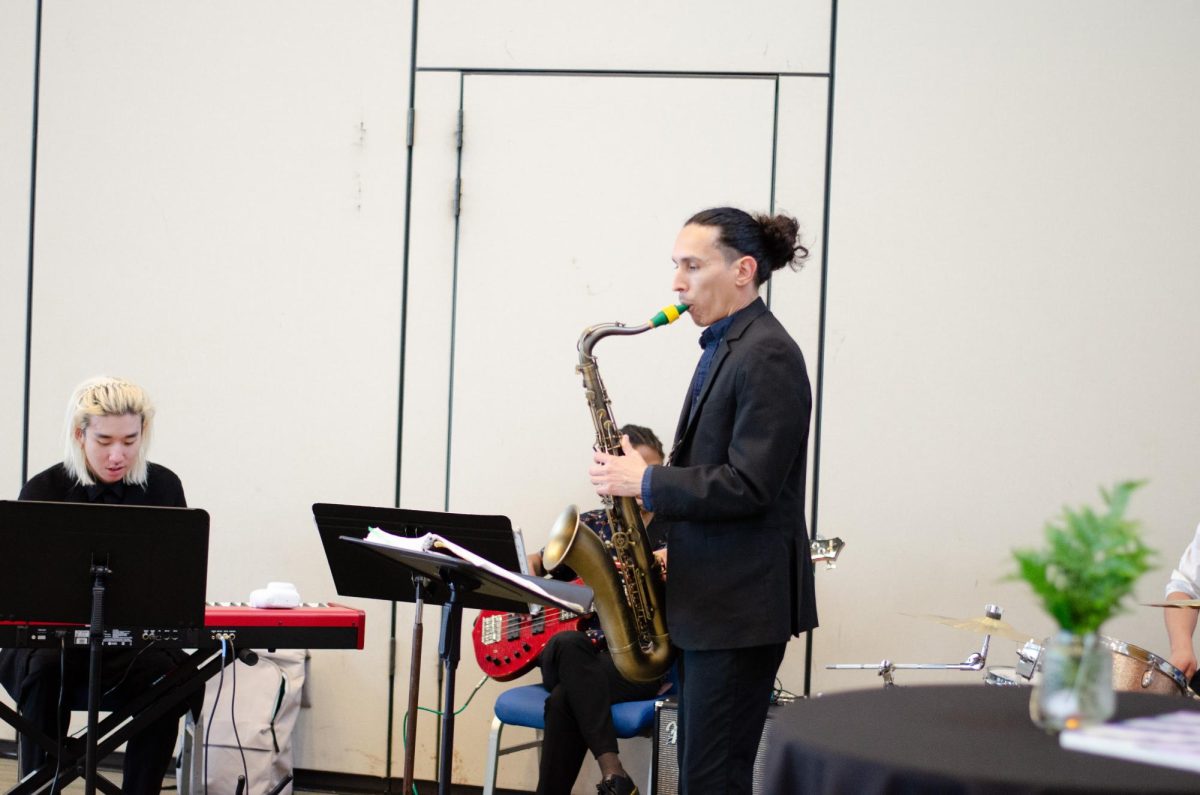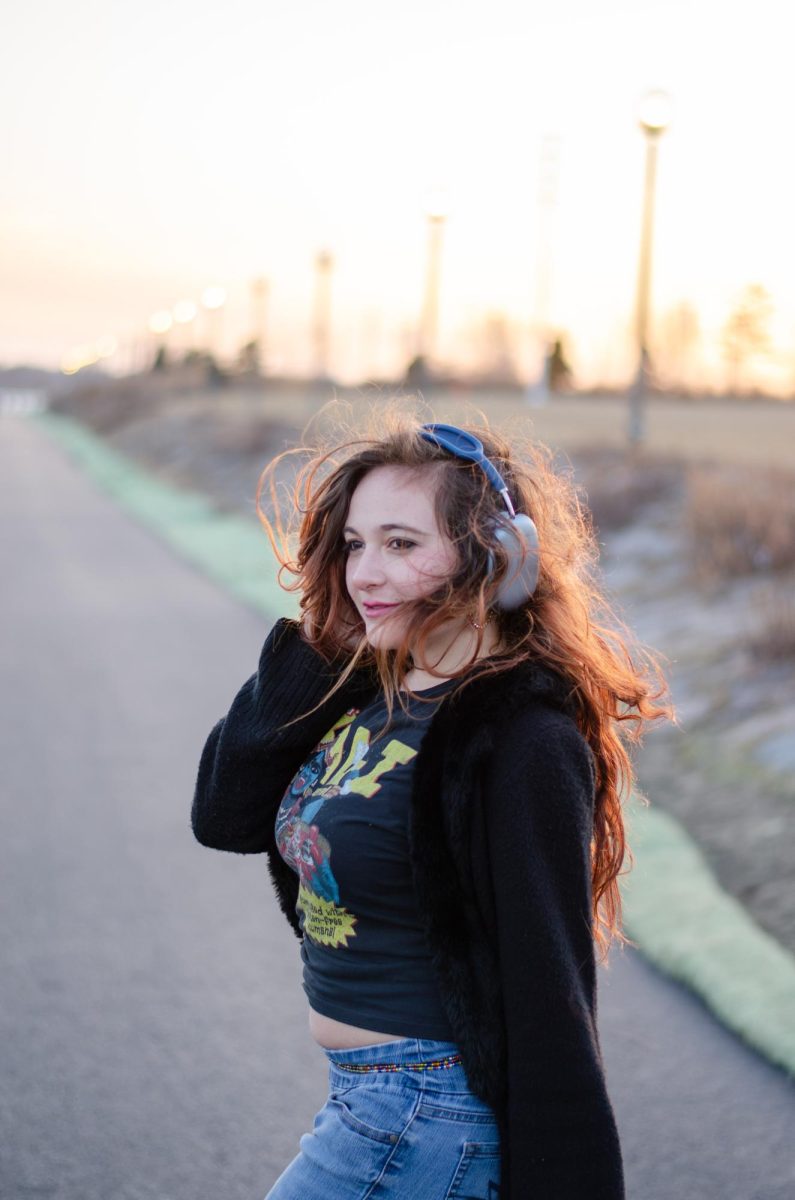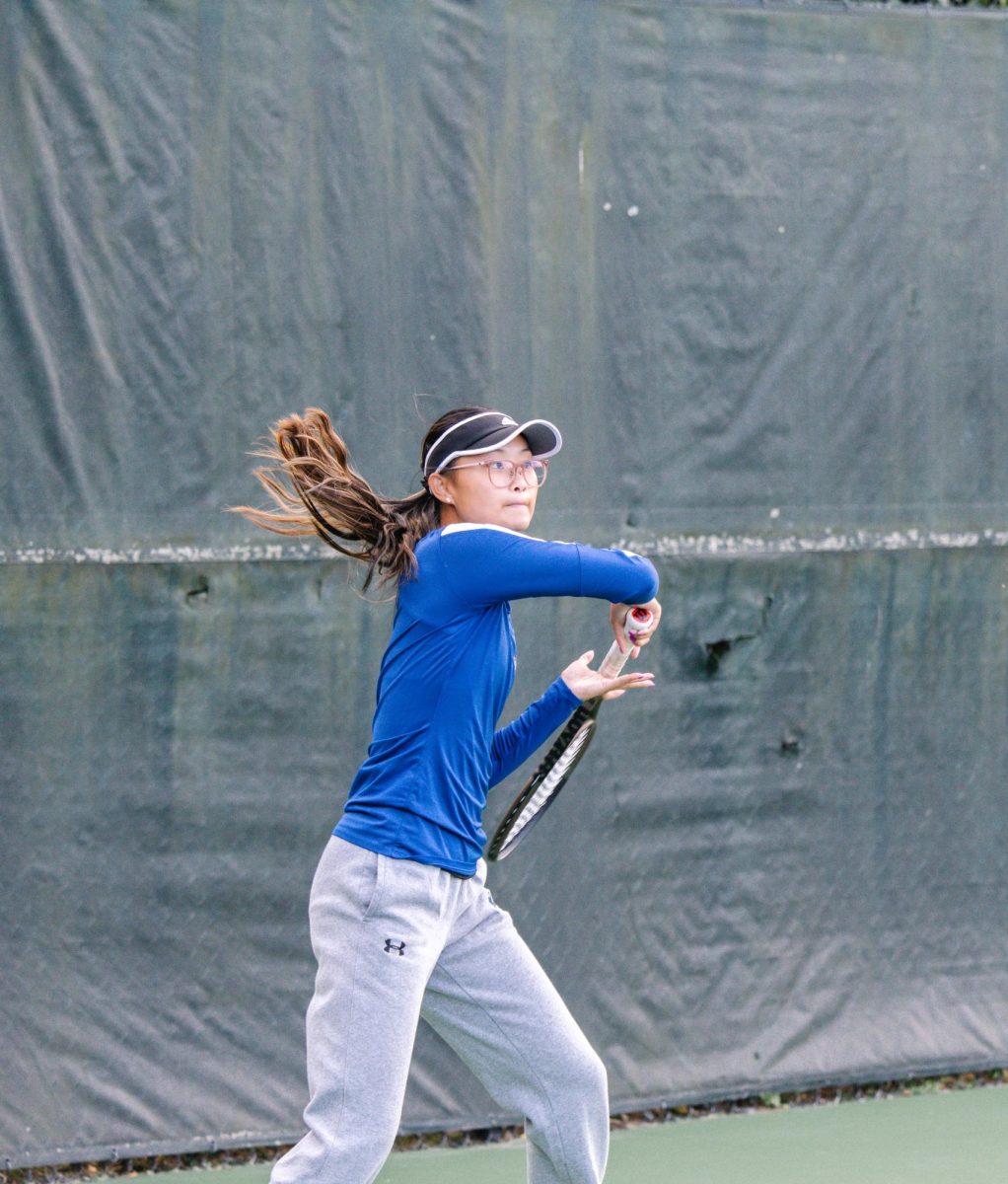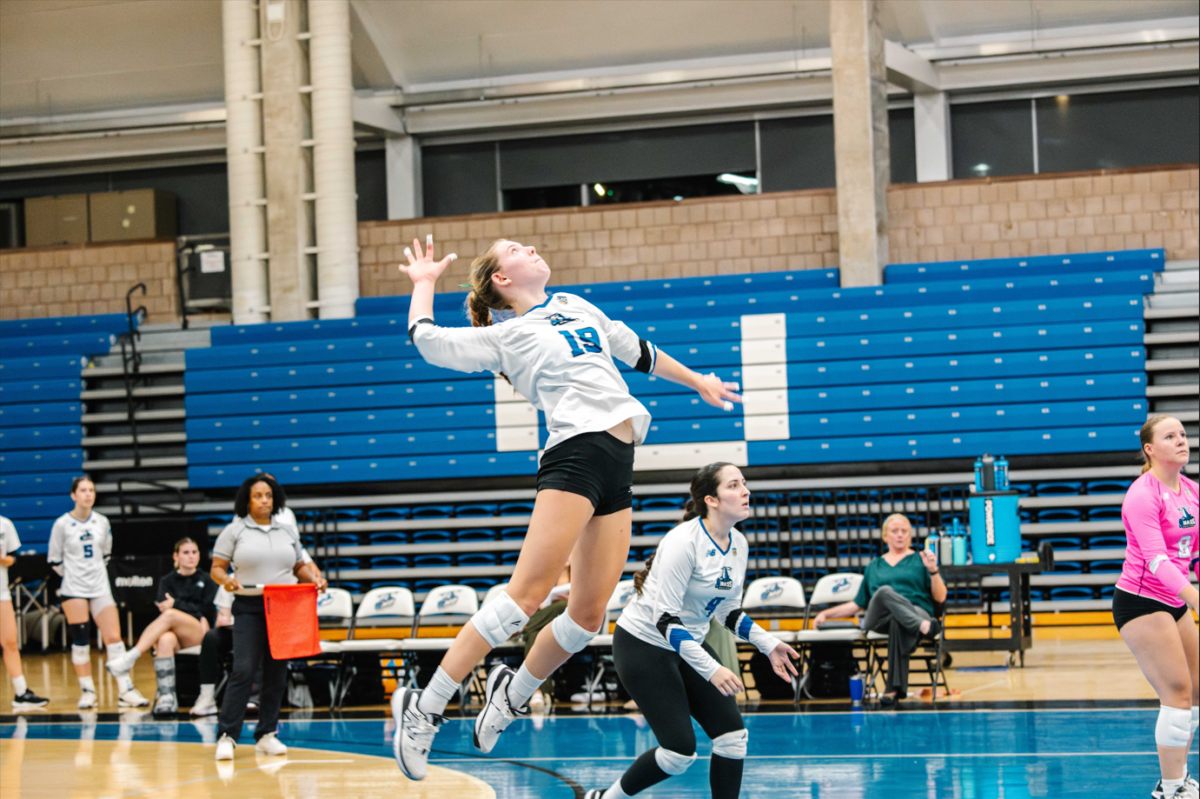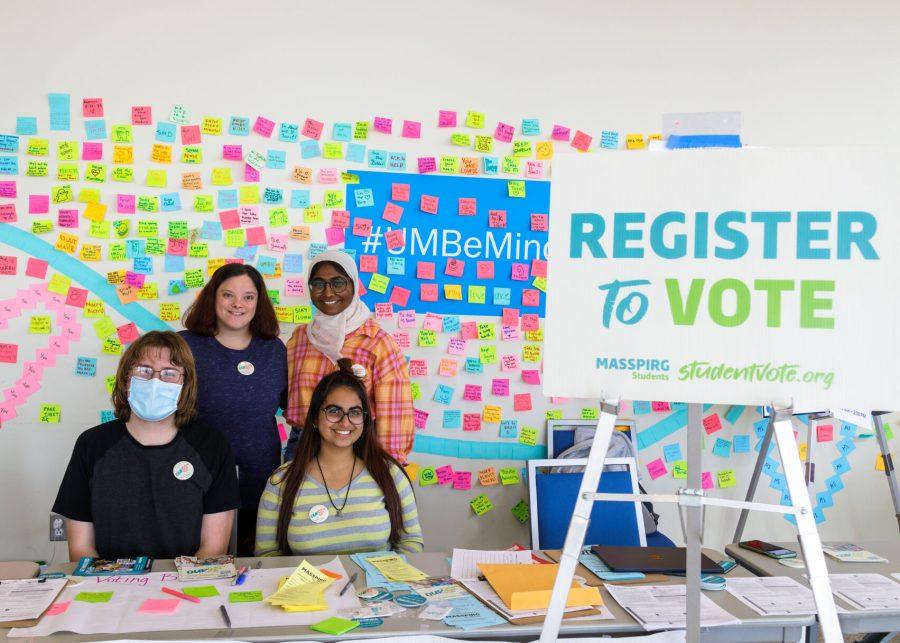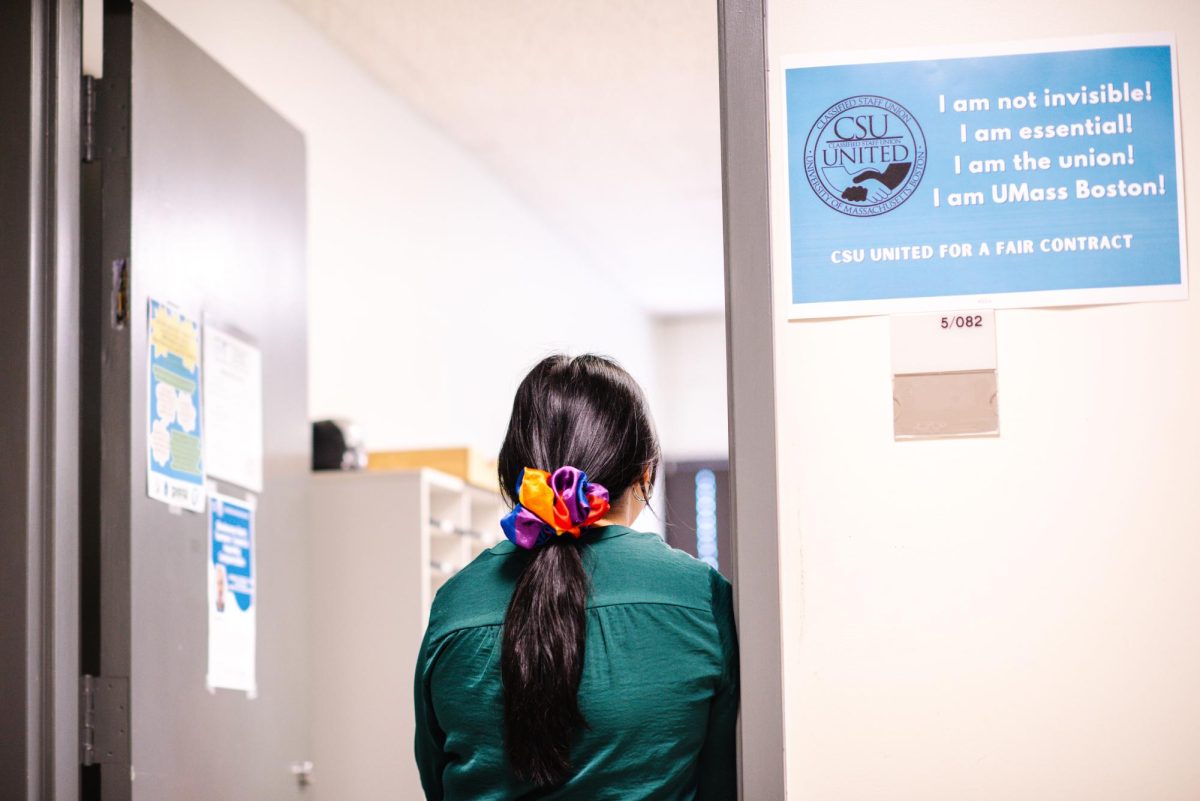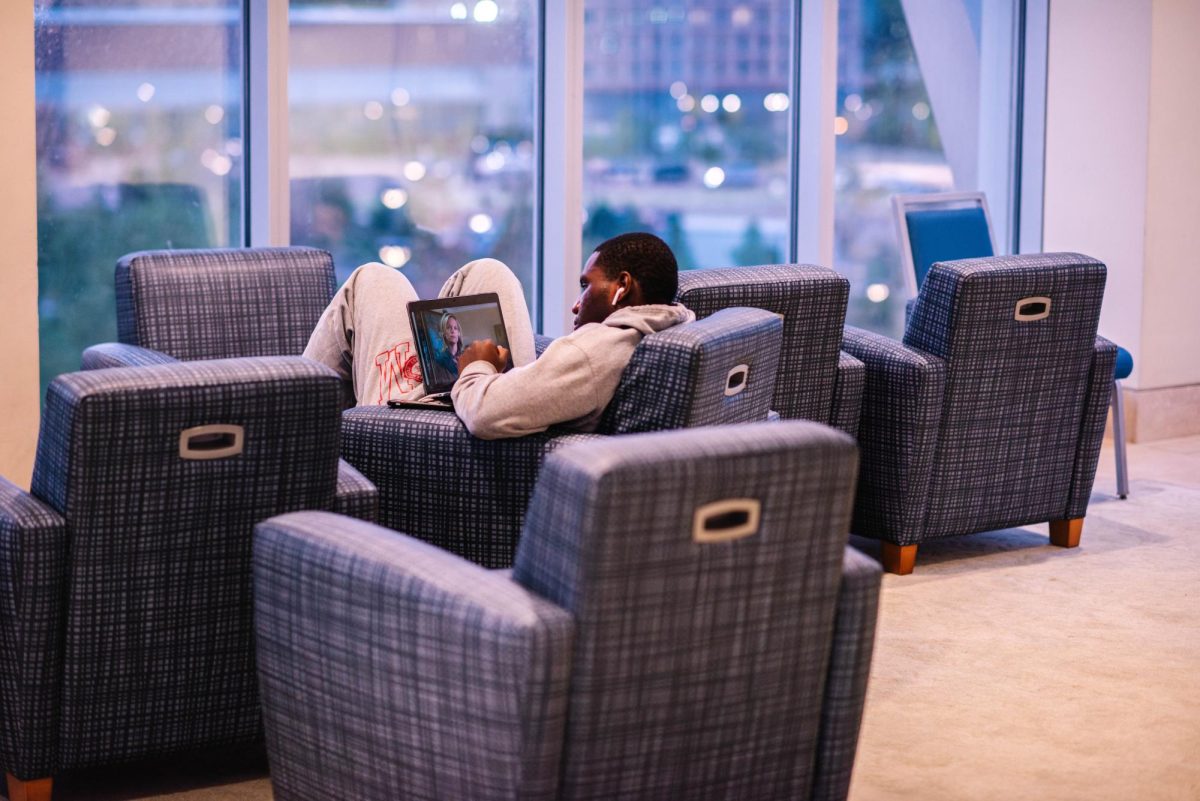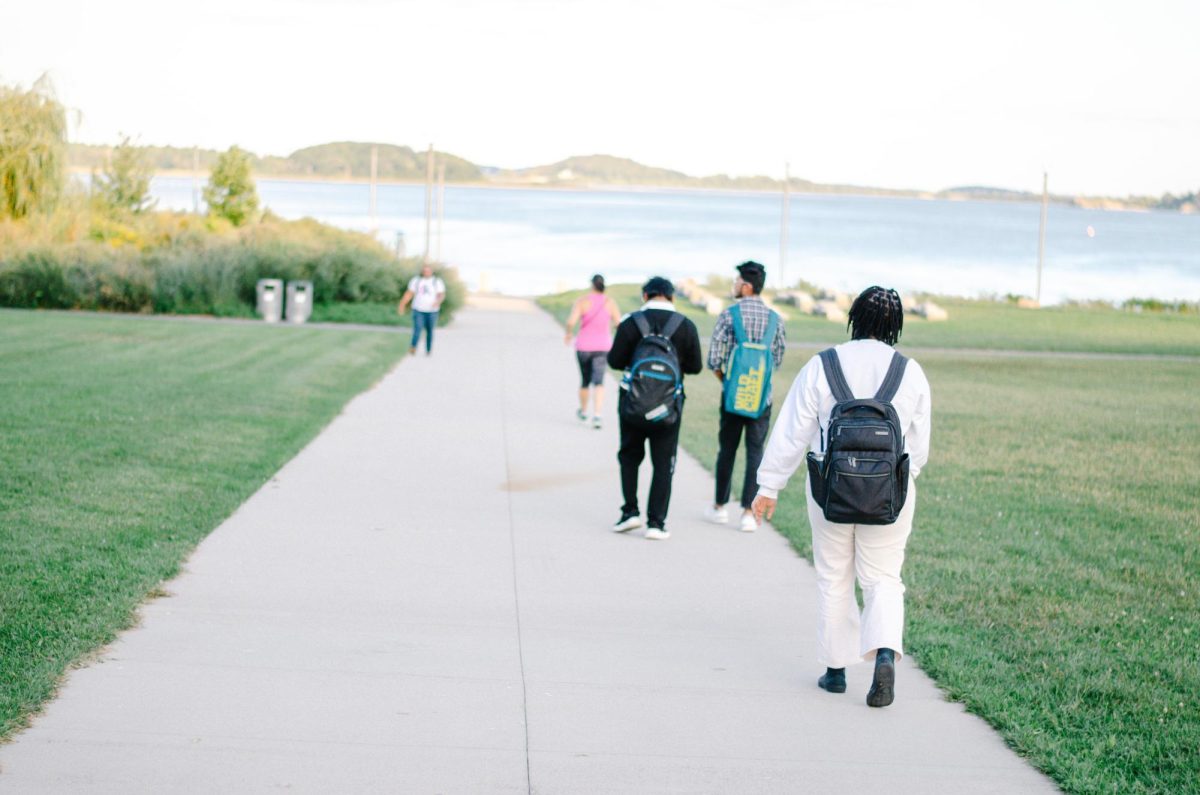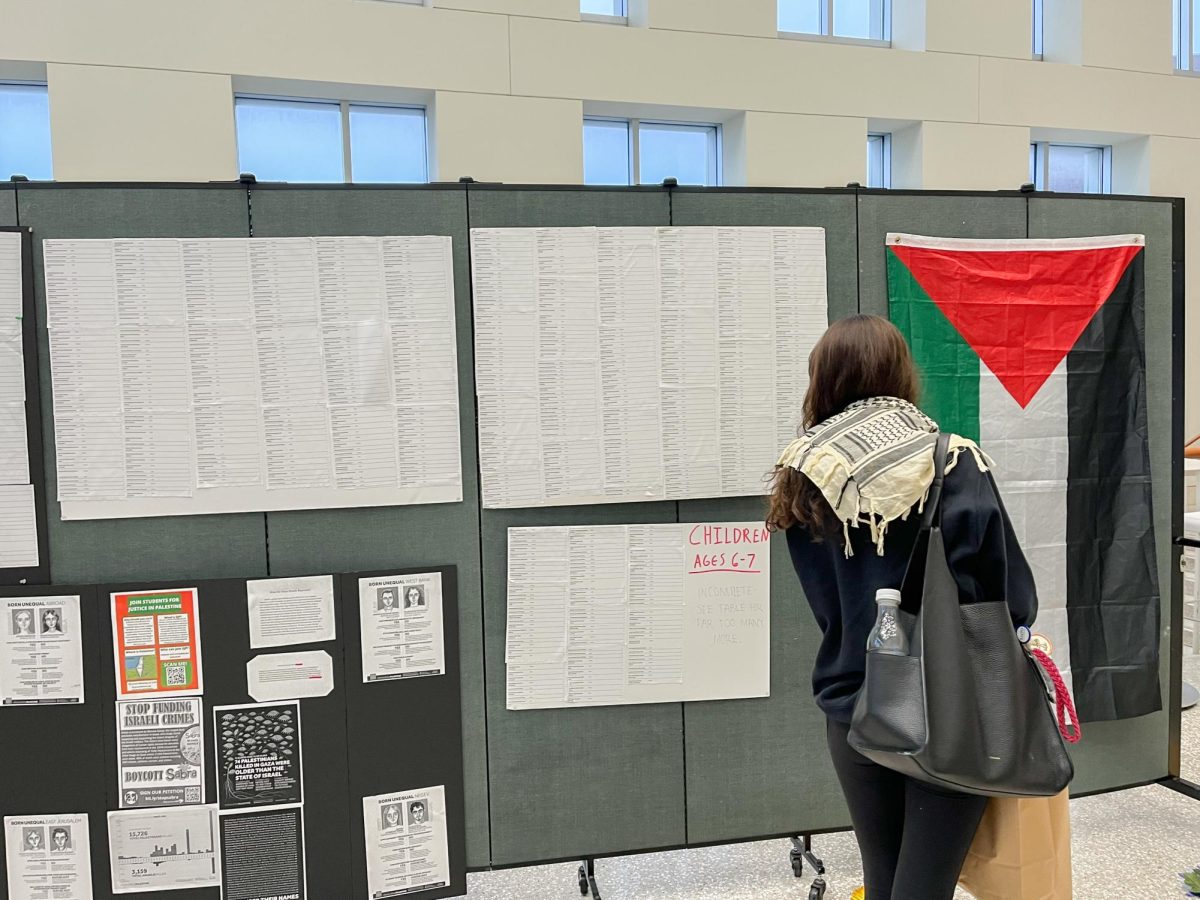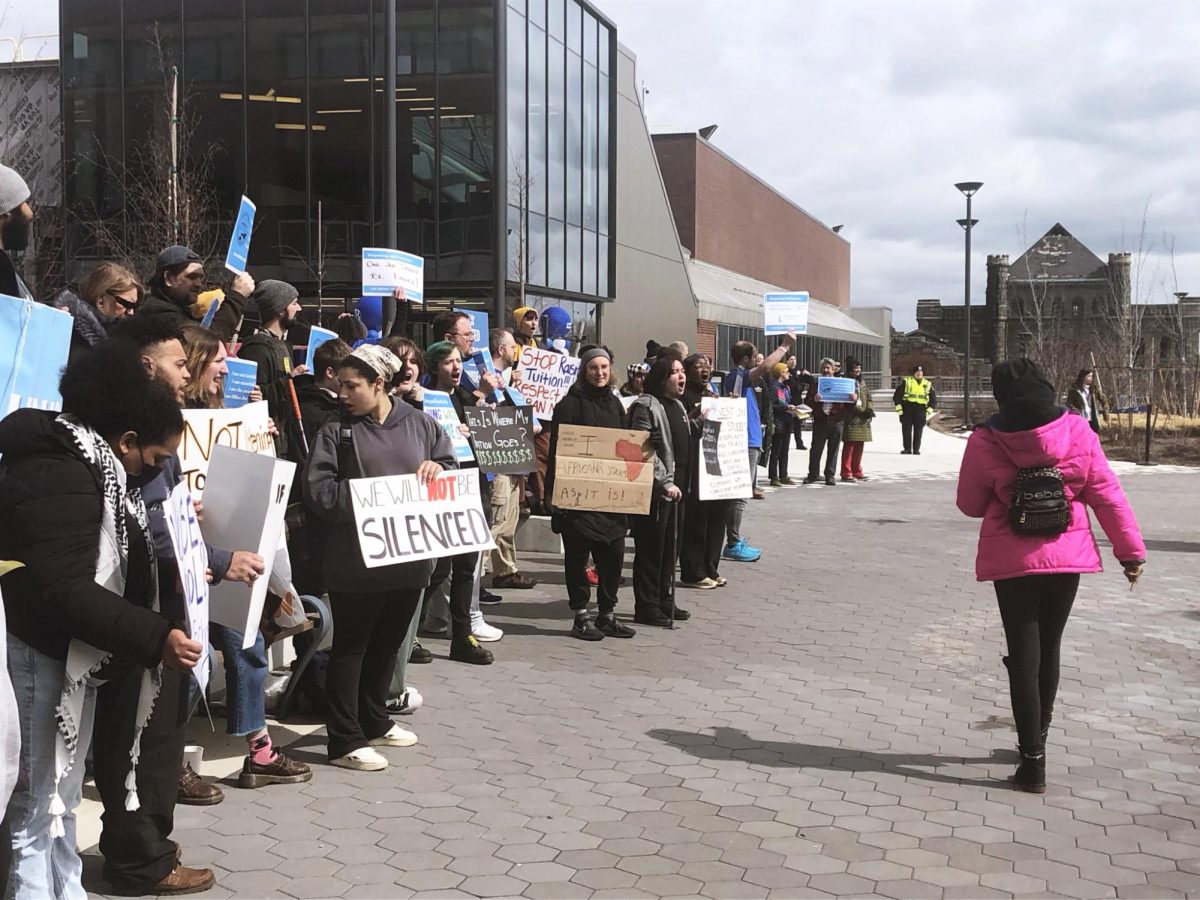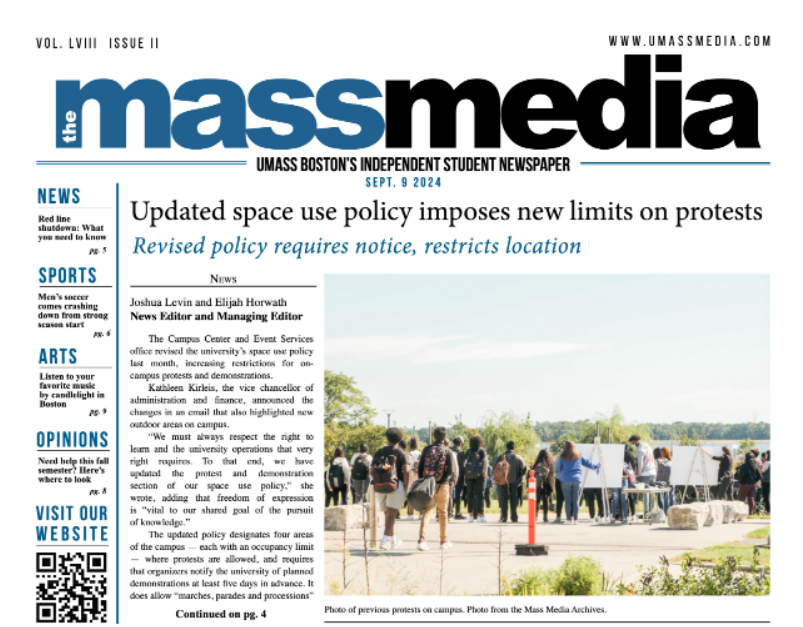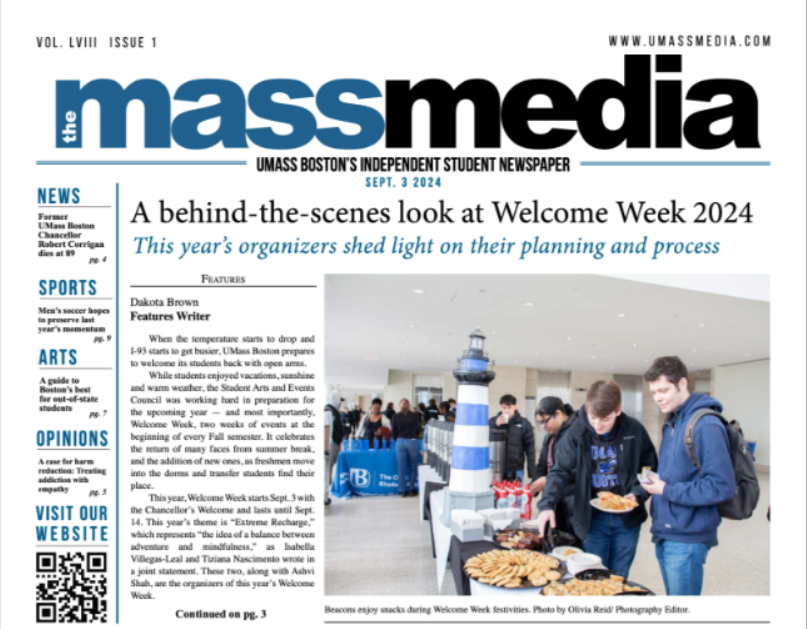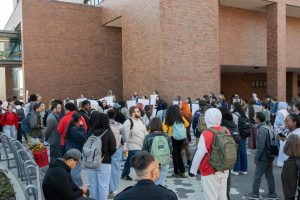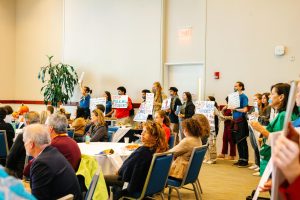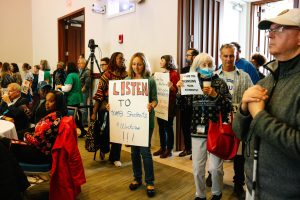An investigative report on religious expression at UMB
October 6, 2009
In a place as diverse as UMB and a city as liberal as Boston, religion sometimes gets pushed aside. It is a topic barely mentioned by administrators or discussed outside classrooms specifically designated for it. It’s easy to imagine that the vast majority of students are not religious or active within their faith.
But there are no less than seven different clubs dedicated to religion registered at UMB. Two of them are new this year. An eighth club for Catholic students is underway. Many students complement their academic and secular lives with strong faith, spirituality and religion.
Devotion to the Divine
Naresh Jallipalli is a twenty-eight year old graduate student in applied physics.
“My father is an atheist and my mother, she has some kind of Hindu belief but I grew up atheist . . . I was an egoist. I can say I was happy, but I was ‘psycho’ happy. I never used to treat people nicely. I used to dominate people and trick people. For me, at the time, telling lies and tricking people was a game. I never hesitated to make people fools for my advantage.”
This changed about eight years ago, when a friend introduced Naresh to Vedic scriptures, an ancient collection of spiritual writings from India, one of the earliest records of religion. Unimpressed by some people in India who perform what he labels “magic tricks” and then claim to be gods or goddesses, Naresh was searching for something genuine.
“God is only one,” he said. “Maybe people call it by different names like Christ, Allah, Krishna, but God is only one… I know now how God is interacting in everyone’s lives and how he is helping each and every man and woman, so I am always grateful to him.”
Naresh is spreading his “God Consciousness,” with the Bhakti Yoga club, which is open for everyone to join through the SAGroup website. The club will host yoga and cooking classes, music therapy and lots of spiritual discussion.
Hameeda Sadiq is a twenty-year old nursing student, and a devout Muslim.
“I am the person I am because of my religion,” she said. “Islam is a way of life. It makes sense to me. Any question I have Islam answers for me. And it’s a hard religion, but it’s a very good religion. The religion and the Qur’an itself… it shows you how to live, how to deal with problems. Any source that you need or want is here. And as you read it, it never ends. It gives you so much information.”
Hameeda prays five times a day, reads in the Qur’an continuously, and tries to be a good person according to her faith. She wears modest clothes and a scarf to cover her hair, to refrain from appearing attractive to men.
“It’s my own choice. I value myself, and I want only good for myself . . . If you have gold, you keep it in the bank, because if you tell everyone you have this gold, they might try to grab it,” she said.
Having emigrated from Afghanistan to the US in 2000, less than a year before the 9/11 attacks, Hameeda had to deal with some misconceptions about Muslims. Despite a few difficult experiences in the US, Hameeda has come to feel right at home at UMB.
“My people have been harassed. I had to overcome a lot . . . I am proud of myself. UMass is really diverse and I feel really comfortable being with other Muslims and people who communicate with me for who I am. There is no difference between Christians, Muslims or any other people. They’re all the same.”
Finding Meaning
Daniel is a UMB alum with a B.A. in Classical Studies. A Roman Catholic, Daniel was confirmed at the age of fourteen.
“My faith has gotten so much stronger since my confirmation, and gets stronger all the time,” Daniel said via email.
Through the study of ancient Greek and Roman cultures, Daniel gained a deeper appreciation of the structure and rituals of his religion, allowing him “to profess” his faith “not just in words but in meaning.”
Daniel loosely defines himself as a bisexual. Contrary to what some people might believe, his sexual orientation in no way contradicts his faith.
“The Roman Catholic Church considers acts of lust, and that includes fornication and homosexual acts, to be offenses against the virtue of chastity… Since this is the faith and the religion that I have chosen, I make a conscious decision not to let my sexual orientation and/or preferences come into conflict with them,” he wrote.
“If you’re committed to your faith, then through that you’ll have core values that will color your words, thoughts, and deeds in all aspects of your life, including your sexual life… My sexuality has never been something that I have considered a defining quality for me, so I see no reason to let it interfere with my faith.”
Daniel describes his faith like an anchor in his life.
“I have been fortunate enough to know people who choose no faith, and I’ve watched them struggle to find something in the world around them to give their lives a sense of purpose or meaning; those relationships have underscored to me the importance of having, at the least, a set of core values to guide you so that you can try to really live life.”
Tradition vs. Faith
Steven Pirello, an Art History major and the curator of the art gallery in the McCormack building, is a conservative Jew.
“What I have pulled away from Judaism is the emphasis on family,” he said. He doesn’t believe in keeping kosher and he does not keep “Sabbath,” which means Saturday, the Jewish holy day, when many Jews do not use electricity, do any work, or drive. But his faith and religion are still a big part of his life.
“I have my own perception of what God is and there are certain times when I feel inspired to appeal to God,” he said. “To be honest, I appeal to my grandparents as intercessors instead of directly to God. And that’s a superstition we’ve always had in my family. I know my grandparents are watching over us, I know they’re taking care of us.”
Steven’s religion has had ups and downs. At thirteen he didn’t want to get a bar mitzvah (a ceremony for Jewish adolescents when they become adults in the eyes of God), but was convinced by his mother to do it for his grandparents. Two years ago, when he started dating his girlfriend, Steven stopped going to temple altogether. Now he goes occasionally, but it can be hard.
Seventy-five is the average age at his temple, and he is the youngest person who attends service. Although Newton, where he lives, has many Jewish temples, some with vibrant young communities, Steven feels loyal to his own temple, partially because both of his uncles used to be presidents there.
“You can’t make your children believe in God. I don’t think that you can pass down faith and spirituality, but you can pass down tradition,” he said.
Doubting God
Andrew Hultin and Matthew Conlon, both freshmen majoring in EEOS, consider themselves atheists.
“My parents never brought me to church.” Matthew said. “There was a time when I was thirteen or fourteen that I started going to church myself because I wanted to see what it was like, but actually my church burnt down and I just stopped going.”
The Sacred Heart Church of Weymouth burnt down in 2005, and has since been rebuilt and reopened in December 2007.
“Religion is just made up by man to give him a sense of comfort about what happens when he dies. And what happens to good people as opposed to bad people,” Matthew said.
Even though he doesn’t believe in God, Matthew sees two sides to this issue.
“I think it is a nice idea in principle. The ideals of the religion can be good, like the Ten Commandments, because they instill good in people. But the idea of the church, and the people running the church, I just don’t believe in that.”
Andrew has a similar sentiment, especially concerning the contradictions between some faiths and modern science.
“People will say evolution isn’t true, and this is how it happened, so did God purposely place fossils to deceive us? It seems to me very unlikely.”
Exploring Faith
Interfaith Chapel, located on the second floor of the McCormack building, offers a variety of services. They hold mass on Wednesdays and Fridays, they have a bible study group as well as an interfaith club, where people of all religions (or lack thereof) are encouraged to participate. They also offer prayer rugs for Muslim students, counseling, and a peaceful atmosphere open to everyone.
Staff includes the protestant Reverend Adrienne Berry-Burton, and Catholic ministry Jennifer Sparrow and Reverend Gerard McKeon.
“Students are very open when they come here,” said Ms. Sparrow. “They engage with each other about what they believe in.”
Reverend McKeon wants to inspire students to visit the chapel.
“Part of college is to really question your faith and to begin to explore what it is that you do believe, and we can be helpful with that questioning and going deeper,” he said. “We’re not here just for people who want to practice their faith but also for those who want to ask the questions and are struggling with it.”
Reverend Adrienne emphasizes that faith and religion can help some students feel more “whole.”
“We encourage students to be people of faith and intellect . . . not one or the other.”

